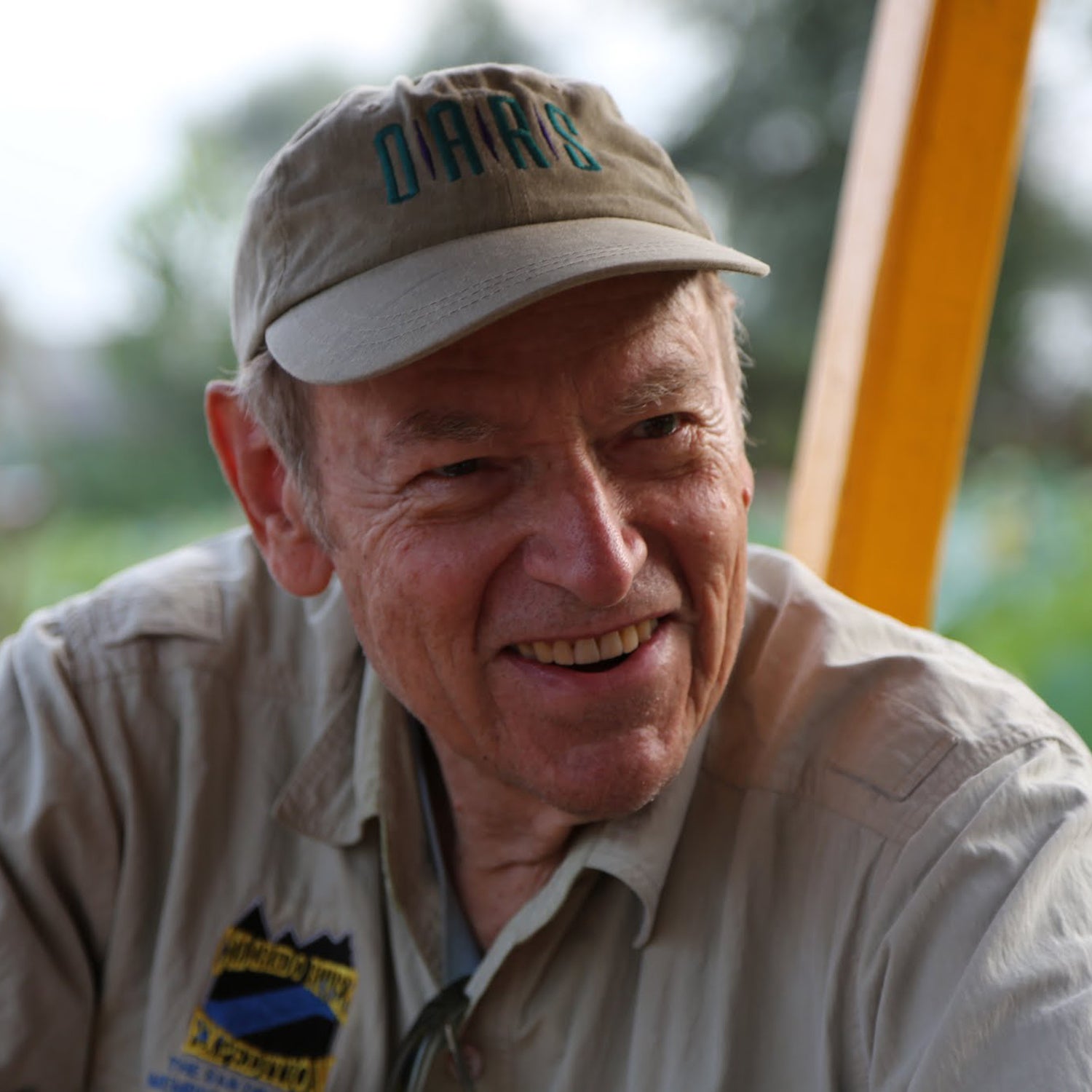Though George Wendt built his river-running outfit (Outdoor ���ϳԹ��� River Specialists) into one of the largest outdoor adventure companies in the world, the former middle-school math teacher always remained an educator. He made it his mission to use paddling trips to expose people to wild rivers in the hopes they’d see the value in preserving them. One of his favorite sayings was, “We save what we love, and we love what we know.”
Wendt died Saturday, July 9, at the UC Davis Medical Center in Sacramento from complications caused by non-Hodgkin lymphoma. He was 74. Wendt was initially diagnosed in August 2015, and underwent what appeared to be a successful chemotherapy regimen. His health deteriorated in recent weeks, however, and he checked into the hospital on June 17. He died surrounded by his family, including his adult sons Clavey and Tyler.
Wendt co-founded OARS in 1969. The rafting outfit was the first to be permitted by the National Park Service to run exclusively human-powered expeditions (as opposed to motorized rafts) down the Grand Canyon. OARS also ran trips in Utah, Oregon, and California, and today leads 20,000 guests a year on rafting, hiking, and kayaking trips in more than a dozen countries. He also co-founded famed international rafting company Sobek Expeditions and was the backbone behind first descents on rivers around the world, including Chile’s Bio Bio and the Zambezi in Zimbabwe.
”He helped make the most outrageous ideas navigable.”
To those who knew him, Wendt was known for his generosity in the service of river conservation, directing OARS to donate $5 million dollars to non-profit groups over the years, much of it in the form of free river trips to journalists, politicians, and other influencers to publicize the importance of free-flowing rivers. Wendt was awarded the ���ϳԹ��� Travel Trade Association’s (ATTA) Lifetime Achievement Award in 2006 and Friends of the River’s Mark Dubois River Conservation Award in 2012.
Despite his successes, Wendt remained soft-spoken and humble—a contrast to other Grand Canyon pioneers of his generation, like Martin Litton and Georgie White, who were known as much for their outsized, outspoken personalities as for their contributions to river-running. “He had a wonderful curiosity and encouraging nature that allowed people who worked with him to grow and learn,” says Tom Huntington, who worked as a guide for OARS in the 1970s and later with Wendt in river advocacy as director of nonprofit Friends of the River, which Wendt helped found. “He was a great listener.”
Wendt’s first river trip was a June 1962 decent on the Colorado River through Glen Canyon in Utah while he was a student at UCLA. He and a friend floated the river on a craft constructed from inner tubes and planking. “An experienced backpacker, I was immediately captivated by how effortlessly we flowed through the wilderness,” . When both Glen Canyon and California’s Stanislaus River, where OARS ran its first trips in the early 1970s, were later drowned behind dams, it galvanized Wendt’s determination to use his company to, as he wrote, “deliver people into the wilderness and generate excitement for these wild places.”
One of his favorite sayings was, “We save what we love, and we love what we know.”
Growing up in West Los Angeles, Wendt was first exposed to the outdoors through the Boy Scouts and then UCLA’s Bruin Mountaineers, with whom he floated Glen Canyon. After graduation, he worked as a math teacher at Paul Revere Junior High in Los Angeles. During his summers off from teaching, Wendt continued running rivers across the west, but his efforts to improve as a boatman were doubled when he rafted the Grand Canyon in 1965.
In 1969, Wendt began offering guided oar-powered expeditions through the Grand Canyon as well as on the San Juan River in Utah, the Rogue in Oregon, and the American, Merced, and Stanislaus in California during the summer months. In 1972, he quit his teaching job and along with his wife Pam, moved OARS to Angel’s Camp, California to be nearer the Stanislaus, the state’s premiere rafting destination.
In 1973, he co-founded legendary whitewater outfitter Sobek Expeditions when 23-year-olds Jon Yost and Richard Bangs, fresh off an exploratory expedition on Ethiopia’s Omo River, contacted Wendt looking for an established partner. Initially cast as the international branch of OARS, Sobek would lead commercial rafting trips on first descents of the Zambezi River�����Ի� the Bio Bio in Chile. Not long after, the Bio Bio would be drowned behind a dam, further cementing the theme of Wendt’s professional career. “Without George, there would be no Sobek,” says Bangs. “Even last year, he was running rivers with me in Laos and Thailand, and in India the year before. I threw so many wacky ideas at George, yet every time his eyes grew wide, and he wanted to be in the boat. He helped make the most outrageous ideas navigable.”
Closer to home, the Stanislaus was threatened by the New Melones Dam. In 1973, Wendt helped found Friends of the River to spearhead the fight against the reservoir. He, Huntington, and other guides used their two-day trips as a platform to raise awareness for the river’s plight amongst their rafting guests. “At lunch, we’d pull out a metal box full of stationery and lists of Congressmen’s addresses,” says Huntington. “We generated 20,000 letters on the Stanislaus that way.” To no avail—the Stanislaus was inundated at last in 1983.
Wendt was determined not to lose other rivers to dams, and helped protect California’s Tuolumne River by leading the charge to get it designated a federally protected Wild and Scenic River, and directed OARS to work with organizations like American Rivers, Friends of the Yampa, Idaho Rivers United and a dozen other river-conservation non-profits to help get influencers down the rivers with cash donations and donations of spots on trips and even entire 20-person guided trips. “No outfitter connected more people to rivers than George,” says American Rivers senior communications director Amy Kober.
Despite the loss of his wife, Pam, at age 65 to cancer in 2011, Wendt remained a spirited adventurer. He continued to do river trips in India, Laos, and Thailand with Bangs, and to travel to ATTA events across the world. Shannon Stowell, president of the ATTA, mentions a 2012 Bhutan trip: When the group went rafting, Wendt patiently sat through the novice guide’s safety talk, “as though he’d never heard it before in his life. He never let on that he was probably the one who invented the safety talk. He was just a humble, gentle man, but no one did more for rivers and ecotourism.”
CORRECTION: A previous version of this article stated that Wendt was born in 1942. ���ϳԹ��� regrets the error.
CORRECTION: A previous version of this article misspelled Glen Canyon.


